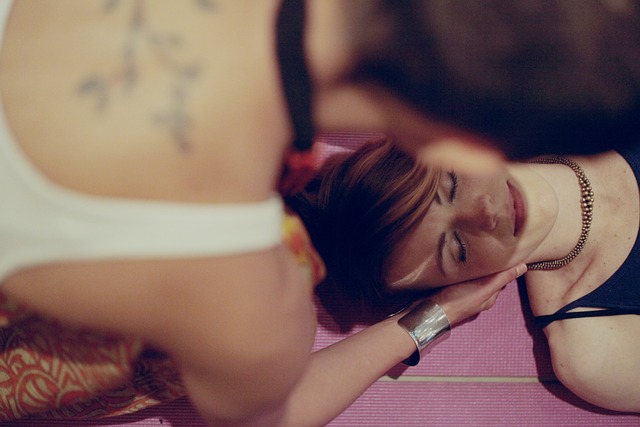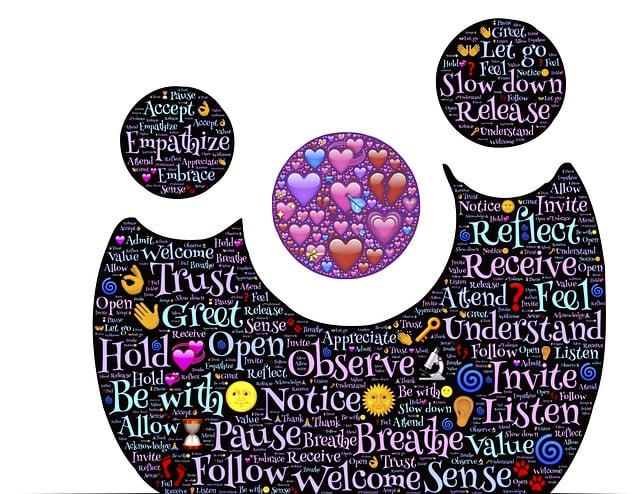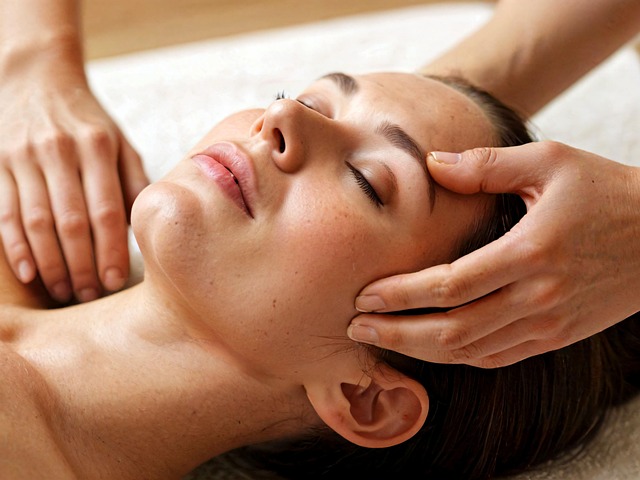Regenerative care is a holistic approach to well-being that focuses on nurturing the mind and body's inherent healing powers, rather than just treating symptoms. By acknowledging the connection between mental and physical health, it addresses issues like chronic stress as both psychological and physiological. Key methods include stress reduction therapy, mindfulness practices such as meditation and deep breathing, yoga, and progressive muscle relaxation to reduce inflammation, improve sleep, and boost resilience. Adopting sustainable lifestyle habits like regular exercise, balanced diets, and sufficient sleep further supports long-term regeneration, enhancing overall well-being and quality of life.
In today’s fast-paced world, prioritizing mental and physical well-being is more crucial than ever. Explore the transformative power of regenerative care, a holistic approach that intertwines these aspects for optimal health. This article delves into effective strategies such as stress reduction therapy, mindfulness practices, and sustainable lifestyle habits. By understanding the intricate link between mental and physical health, you’ll discover how to nurture both for long-term regeneration and overall well-being.
- Understanding Regenerative Care: A Holistic Approach to Well-being
- The Link Between Mental and Physical Health: Why They Are Interconnected
- Stress Reduction Therapy: Techniques for a Balanced Mind and Body
- Integrating Mindfulness Practices into Daily Life for Optimal Care
- Creating Sustainable Lifestyle Habits for Long-Term Regeneration
Understanding Regenerative Care: A Holistic Approach to Well-being

Regenerative care represents a paradigm shift in understanding and addressing well-being, moving beyond traditional medical models that often focus on treating symptoms to a holistic approach that nurtures the mind and body’s natural healing abilities. It emphasizes the interconnectedness of mental and physical health, recognizing that chronic stress, for instance, can manifest as both a psychological and physiological condition. By integrating evidence-based practices such as stress reduction therapy, regenerative care aims to restore balance and resilience in individuals.
This approach prioritizes personalized strategies tailored to an individual’s unique needs, encompassing various dimensions of well-being. It encourages the adoption of healthy habits, promotes mindfulness and relaxation techniques, and fosters social connections—all of which contribute to a sense of restoration and renewal. The ultimate goal is not just to manage symptoms but to empower individuals with the tools needed to thrive in today’s fast-paced world.
The Link Between Mental and Physical Health: Why They Are Interconnected

The connection between mental and physical health is undeniable; they are two sides of the same coin, deeply intertwined and mutually influential. When we experience stress or emotional turmoil, our bodies react physically, often leading to increased inflammation, elevated heart rate, and disrupted sleep patterns. These physiological responses can have long-term effects on overall well-being if left unaddressed. Conversely, chronic physical health issues can significantly impact mental resilience and contribute to anxiety, depression, and other psychological disorders.
Regenerative care recognizes this interplay and emphasizes holistic approaches to healing. Techniques such as stress reduction therapy play a pivotal role in bridging the gap between mind and body. By focusing on mental well-being, these therapies aim to restore balance, reduce inflammation, and promote physical recovery. This integrated approach ensures that individuals experience comprehensive healing, addressing both the symptoms and underlying causes of their conditions.
Stress Reduction Therapy: Techniques for a Balanced Mind and Body

Stress Reduction Therapy plays a pivotal role in integrating mental and physical well-being within regenerative care. Techniques such as mindfulness meditation, deep breathing exercises, yoga, and progressive muscle relaxation are powerful tools to balance mind and body. These practices not only alleviate stress but also foster a sense of calm, improving overall mental health.
Moreover, stress reduction therapy enhances the body’s natural healing mechanisms by reducing cortisol levels and promoting better sleep patterns. By incorporating these techniques into daily routines, individuals can experience improved physical health, increased resilience to disease, and a deeper connection between their mental and physical states, ultimately contributing to a holistic approach to regenerative care.
Integrating Mindfulness Practices into Daily Life for Optimal Care

Integrating mindfulness practices into daily routines has emerged as a powerful tool for enhancing both mental and physical well-being, central to regenerative care principles. These practices, such as meditation and deep breathing exercises, offer a simple yet effective way to manage stress and cultivate a sense of calm amidst life’s challenges. By dedicating just a few minutes each day to mindfulness, individuals can begin to unravel the profound impact that chronic stress has on their bodies, leading to a cascade of health benefits.
Stress reduction therapy, grounded in mindfulness, encourages present-moment awareness, helping individuals detach from anxious thoughts and worries. This shift in perspective allows for better coping mechanisms, improved emotional regulation, and enhanced overall resilience. Moreover, regular mindfulness practice has been linked to reduced inflammation, lower blood pressure, and improved cardiovascular health—all vital aspects of regenerative care aimed at nurturing the body’s natural healing abilities.
Creating Sustainable Lifestyle Habits for Long-Term Regeneration

Creating Sustainable Lifestyle Habits for Long-Term Regeneration involves integrating mental and physical well-being practices that promote regenerative care. This means adopting a holistic approach where daily routines support both your mind and body in healing, repairing, and rejuvenating over time. Incorporate regular exercise tailored to your fitness level, a balanced diet rich in nutrient-dense foods, and sufficient sleep to allow your body to recover and restore itself. Additionally, mindfulness practices like meditation or yoga can significantly enhance stress reduction therapy, enabling you to manage stress levels effectively.
These habits contribute to a resilient and sustainable lifestyle that fosters continuous regeneration. By prioritizing mental clarity, emotional balance, and physical vitality, you create an environment conducive to long-term wellness. This holistic approach ensures that your mind and body work in harmony, allowing for optimal recovery and renewal, ultimately leading to improved quality of life and overall well-being.
By integrating mental and physical well-being through regenerative care practices, individuals can achieve a profound sense of balance. The article has explored various techniques, from understanding holistic approaches like regenerative care to implementing stress reduction therapy and mindfulness practices. These strategies are key to fostering interconnected mental and physical health. Adopting sustainable lifestyle habits further supports long-term regeneration, ensuring folks can navigate life’s challenges with resilience and vitality.
